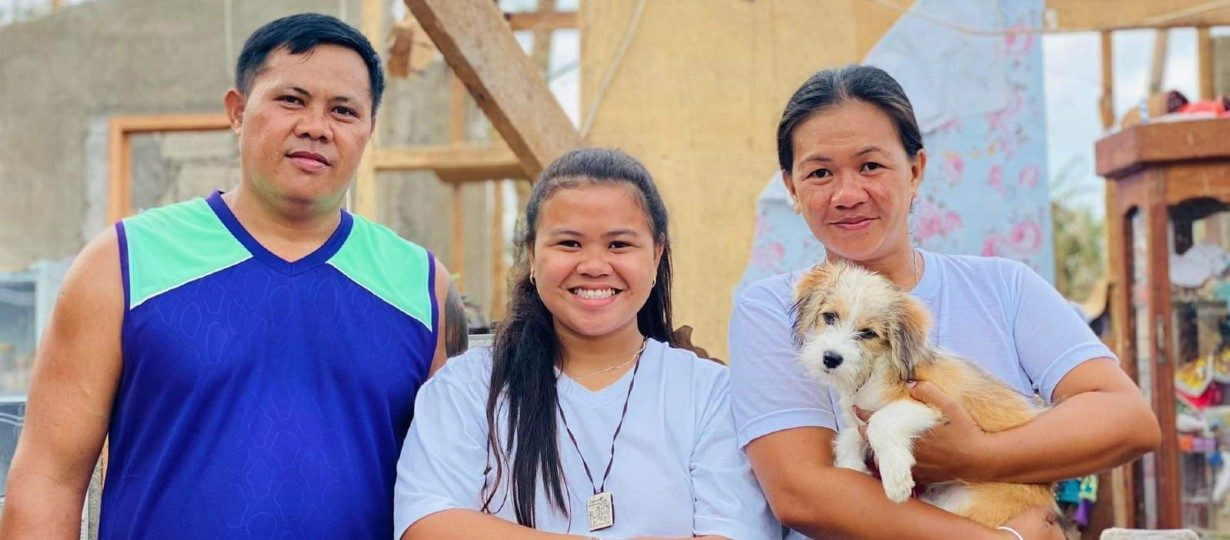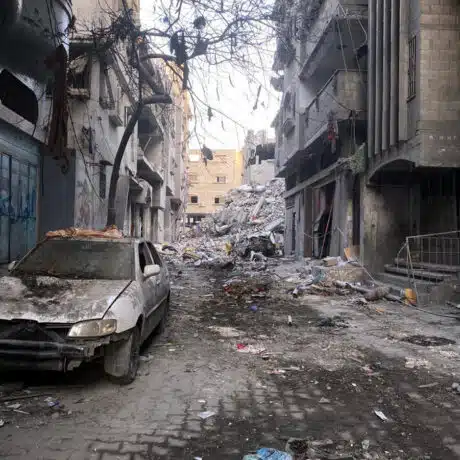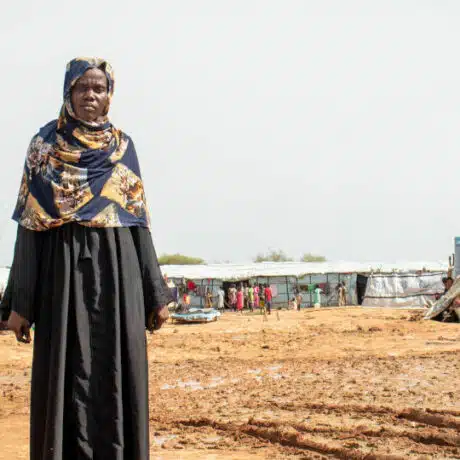News and Stories - Emergencies - 18 January 2022
Responding to Typhoon Rai in the Philippines

“In my entire life, this is my first time I have experienced such a strong typhoon that has totally damaged our home and other houses in the village, including our source of income – coconut farming and fishing.”
– Francine, Grade 9, Southern Leyte
Francine is just one of 15.9 million people who have been affected by Typhoon Rai (also known as Typhoon Odette) since it struck the Philippines on December 16, leaving a trail of destruction in its wake.
Together with her mother, grandmother, two sisters, and their dog, Francine fled to a relative’s house when the storm began, and when they returned home, they realized how fortunate they were to have escaped safely.

“After the typhoon, when we saw our house, it was totally damaged,” says Francine’s mother Lerma. “We can find a way to rebuild the house, but lives cannot be replaced. At first, we didn’t know where to start since all of our belongings were damaged, our clothes were all wet and appliances that were used for our business were also damaged.”
Super typhoon Rai (Odette) brought heavy rains and flooding that displaced thousands of Filipinos over large areas of Visayas and Mindanao, with 12 out of the country’s 17 regions affected. Hundreds of people have perished, with many more injured or missing, while homes, schools and community buildings throughout the region have been completely levelled to the ground and many families have lost their livelihoods.
Francine’s family are facing challenges in the typhoon’s aftermath as there is a scarcity of potable water, food, and hygiene products. “As a teenager, I’m afraid I will not be able buy things for my personal hygiene needs since the market is not open and because this will not be our priority in the coming days,” says Francine.
Plan International is responding with relief supplies in hard-hit communities like Francine’s, where we are currently distributing lifesaving non-food items, such as menstrual hygiene management kits, hygiene, shelter, and water kits for distribution to families in the most affected areas of the typhoon.
“Children are among the most vulnerable when disaster strikes, especially now with the risk of COVID-19,” says Plan International Philippines Country Program Manager for Emergency Preparedness and Response, Telesforo Laplana. “It is important to address the specific needs of children and ensure that families and communities are also protected from the risk of Covid-19 amid the emergency response.”
With millions impacted by this disaster, Plan International Australia needs your help to scale up our efforts, as quickly as possible.
Please donate today and help families who have lost everything in the typhoon – donate here.





